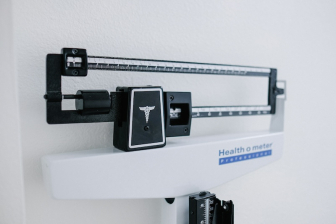Adagrasib and brain metastases: Does it work, is it better than sotorasib, and how to get it?
Last updated: 31 January 2024

You can legally access new medicines, even if they are not approved in your country.
Learn howAround 40% of non-small cell lung cancer patients with the KRAS G12C mutation develop brain metastases within 6 months of their initial diagnosis 1. They also are reported to have a worse prognosis than similar patients without the KRAS G12C mutation 4.
With this in mind, any new treatment that addresses the KRAS G12C mutation would only stand the test of time if it can also address brain metastases.
Adagrasib has been the latest targeted therapy after sotorasib to get approval for treating KRAS G12C-mutated NSCLC. But is adagrasib also effective against brain metastases? Here's everything you need to know.
Does adagrasib cross the blood brain barrier?
Clinical trial data suggest that it does.
In the 1b portion of the KRYSTAL-1 trial, adagrasib demonstrated intracranial activity. 35% of patients reportedly experiencing their brain metastases shrink or disappear.
The median duration of response was 5.6 months. The median overall survival was 11.4 months, and the overall survival rate at 12 months post-treatment was 41.1% 2. It's important to note that this study was focusing on patients with previously untreated brain metastases.
According to Marcelo Negrao, M.D., adagrasib may offer patients a good chance of seeing response in the brain without needing additional therapy, such as radiation 3.
Does sotorasib cross the blood brain barrier?
Sotorasib has also been shown to cross the blood brain barrier.
A post-hoc analysis of the phase 1-2 CodeBreaK 100 trial reported a confirmed intracranial objective response rate of 25% for patients treated with sotorasib. The reported median overall survival was 8.3 months 5. Note that the participants in the trial had previously treated brain metastases.
Unlike adagrasib, sotorasib has not yet been evaluated for efficacy in previously untreated brain metastases. This is the topic of the currently ongoing NCT04185883 trial 5. Its results will shed more light on sotorasib's potential role in treating brain metastases.
Is adagrasib better than sotorasib for brain metastases?
Many patients may be asking themselves this question. Unfortunately, there is no clear answer.
At this moment, adagrasib is the only KRAS G12C inhibitor with demonstrated intracranial activity in untreated brain metastases 6. However, this doesn't necessarily mean it's better than sotorasib.
Sotorasib has not yet been thoroughly tested in patients with previously untreated brain metastases. Furhter research on the topic is ongoing. Only with its data will we be able to compare adagrasib and sotorasib on their efficacy in treating brain metastases.
Where is adagrasib available?
If you're a patient with advanced NSCLC, the KRAS G12C mutation, and brain metastases, your treating doctor may decide to prescribe adagrasib.
But where is it available?
Krazati (adagrasib) is currently approved in the USA, Europe and the UK. However, it is not available on the market everywhere yet.
The good news is, if your doctor prescribes adagrasib, there are ways to get the medicine and start your treatment immediately.
Do you have a prescription for adagrasib? Get in touch with our team of Medical Access Experts. We will support you in purchasing adagrasib as quickly as possible.
References:
- Sabari, Joshua K. Activity of Adagrasib (MRTX849) in Brain Metastases: Preclinical Models and Clinical Data from Patients with KRASG12C-Mutant Non–Small Cell Lung Cancer. NCBI, Accessed 31 January 2024.
- Adagrasib Demonstrates Intracranial Activity in KRAS G12C+ NSCLC. Cancer Network, 13 July 2023.
- Adagrasib effective for patients with KRAS G12C-mutant lung cancer and untreated brain metastases. MD Anderson Cancer Center, 16 June 2023.
- Intracranial Efficacy of Adagrasib in Patients From the KRYSTAL-1 Trial With KRASG12C-Mutated Non–Small-Cell Lung Cancer Who Have Untreated CNS Metastases. Journal of Clinical Oncology, 16 June 2023.
- Sotorasib Induces Intracranial Activity in KRAS G12C–Mutated NSCLC Brain Metastases. OncLive, 8 September 2021.
- Journal of Clinical Oncology Publishes Clinical Results of Adagrasib as a Targeted Treatment for KRASG12C-Mutated NSCLC with Untreated Central Nervous System (CNS) Metastases. PR Newswire, 20 June 2023.





